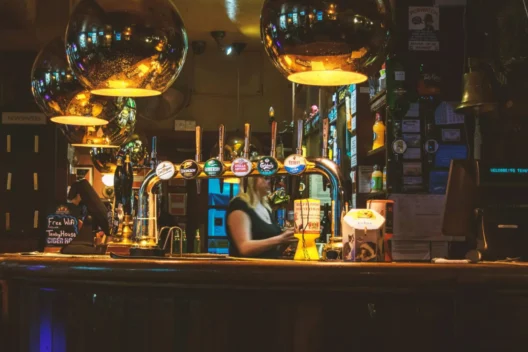Register to get 2 free articles
Reveal the article below by registering for our email newsletter.
Want unlimited access? View Plans
Already have an account? Sign in
Over the past five years, the UK has seen a steady rise in the number of people eating an all-vegan diet. According to a recent study, over three million of us have made the switch to plant-based diets, swapping out meat, dairy and animal products in favour of vegan alternatives. But what does it mean to be vegan and why are so many people choosing to change their diets in this way? Electric connection specialists Northern Powergrid have taken an in-depth look at the growth of veganism in the UK.
Vegan food
The vegan diet is one of the first things that comes to mind when you think about veganism. This is what has been thrust in the public’s face more than any other vegan property. Having a plant-based diet is said to be one of the healthiest ways to eat, according to experts. A vegan diet mainly consists of plenty of fresh fruits and vegetables, legumes, nuts, seeds, beans and whole grains. These foods tend to be higher in minerals, vitamins and fibre as well as being low in cholesterol and saturated fats. It is argued that eating foods loaded with animal fats is indeed killing the population via coronary heart disease linked to a meat-based diet. Switching to a plant-based diet can help prevent such cardiovascular diseases.
According to some experts, however, a vegan diet can also have its downsides. The diet may lack protein and lead to that slow building of enzymes, hormones, haemoglobin and antibodies in our bodies. The vitamin B12 is one that we may struggle to get without a meat-based diet. Nutritionist Shona Wilkinson told The Express: “There are things we are getting less of by excluding animal foods. A longstanding B12 deficiency can lead to high levels of a substance called homocysteine in the body, which is associated with cardiovascular disease, Alzheimer’s disease and other chronic conditions.”
The number of vegan restaurants is also on the rise, with 51% of US chefs adding vegan items to their menus in 2018. When it comes to the UK, a number of major supermarkets have been adapting their offerings to accommodate vegan dietary needs. Iceland introduced a new all-vegan food range in 2018, which included vegan chorizo, vegan burgers and vegan ‘chicken’ paella. In addition, Waitrose launched their dedicated vegan range last June, citing a desire to increase choice for vegans in store.
Vegan energy
Veganism doesn’t just have to be about food. Vegan energy is an electricity or gas product that hasn’t used any animals or animal by-products. This is different to green energy as, although green energy uses renewable sources in place of traditional fossil fuels, it is sometimes generated using anaerobic digestion or biomass – both of which can contain by-products of animal farming. Vegan energy can help cut your carbon emissions as well as supporting ethical energy production.
What environmental benefits does veganism have?
As well as the health advantages of the vegan diet, veganism also has a positive impact on the environment. It’s claimed that the meat industry accounts for approximately 20%of greenhouse emissions in the UK. Gresham College professor, Carolyn Roberts, also believes that if all meat-eaters switched to a vegan diet, the total greenhouse gas emissions associated with food would be halved.
Research has shown that the average meat-eater in the UK eats over 10,000 animals during their lifespan.
Each of these require land, water and fuel before they reach our plates. This is causing our planet to overheat, while farming uses 70% of the water that is available to humans. Other arguments towards not eating meat to help the environment include the fact it’s draining the world’s oil and ruining the air. In the US, 37% of pesticide use comes from livestock and animal feed crops and this is producing unnecessary pollution.
So, what’s next for the growth of veganism in the UK? There is certainly a debate to be had, but with so many turning to veganism, this definitely isn’t a ‘fad’ that will simply disappear into the abyss. After all, anything that might help maintain the world for future generations has to be a good thing, right?
By electrical distribution company, Northern Powergrid



















